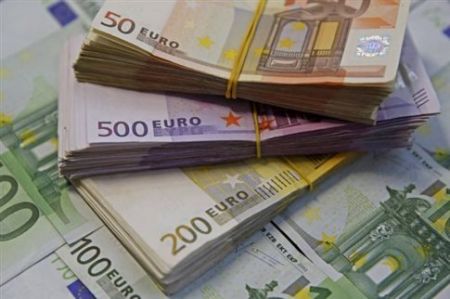Τελευταίες Ειδήσεις
-
ΠαΣοΚ για ανακοίνωση ΥΠΕΞ Λιβύης: «Επιβάλλεται άμεση ενημέρωση»
-
Φωτιές στην Ελλάδα: Δεκάδες ξέσπασαν την Πέμπτη, τέσσερις αντιμετωπίζονται ακόμα
-
Αλλάζει τα δεδομένα το χτύπημα στη Μπερ Σεβά; Το κρίσιμο 48ωρο και η πυρηνική απειλή
-
TikTok: Ο Τραμπ έδωσε παράταση 90 ημερών για την πώλησή του
-
Καρυστιανού: Ταυτοποιήθηκε ο πρώην δικαστικός που φέρεται να της μετέφερε απειλές
-
Εμπλοκή με τη Λιβύη για τα οικόπεδα νότια της Κρήτης: «Παραβιάζει τα κυριαρχικά μας δικαιώματα»
-
EuroLeague: Οι ομάδες, το καλεντάρι και οι οικονομικοί περιορισμοί για τη σεζόν 2025-26
-
ΕΕ: Εννέα κράτη ζητούν από την Κομισιόν τον τερματισμό εμπορίου με εβραϊκούς οικισμούς
-
Βορίδης για ΟΠΕΚΕΠΕ: «Ουδεμία αξιόποινη πράξη έχω τελέσει»
-
Σινεμά στη Σέντρα: Μπουνιουέλ VS Αλμοδόβαρ
-
Αυτή την Κυριακή με το ΒΗΜΑ: Το Harper’s Bazaar Greece
-
Μουσείο Ακρόπολης: Ρεκόρ επισκεψιμότητας και αγώνας για τα γλυπτά του Παρθενώνα
-
Πτώση 1,25% στο Χρηματιστήριο – Στα 184,04 εκατ. ευρώ ο τζίρος
-
Κόντρα στη Βουλή για τον ΟΠΕΚΕΠΕ: «Με ποιο τρόπο θα απαλλάξετε Βορίδη και Αυγενάκη;»
-
Φωτιά στην Χαλκιδική, σηκώθηκαν και εναέρια μέσα
-
Ρότζερ Στόουν: «Με έχουν προσεγγίσει πολλοί από την Ελλάδα»
-
Ένα story 24 ωρών με γαλάζιο ταγέρ
-
Δασμοί Τραμπ: Η EE δείχνει έτοιμη να συμβιβαστεί σε αμοιβαίο 10% με τις ΗΠΑ
-
Η εμβέλεια των ιρανικών πυραύλων, η Σούδα και οι ελληνικοί Patriot
-
«Σπάρτη 2034»: Επιστημονικό συνέδριο κορυφαίων αρχείων και βιβλιοθηκών
-
Η στιγμή της σύλληψης 29χρονου για διακίνηση ναρκωτικών στη Νέα Μάκρη
-
Γραμμή 4 Μετρό: Έχει ολοκληρωθεί πάνω από το 30% της σήραγγας
-
Καιρός: Από τα 38άρια στην ψυχρή λίμνη, τα καμπανάκια του Μαρουσάκη για έξι περιοχές
-
BHMAGAZINO: Κάρλος Αλκαράθ και Νόβακ Τζόκοβιτς στο εξώφυλλο
-
Νέοι κανόνες από την ΕΕ για όσους έχουν κατοικίδια, οι μεγάλες αλλαγές

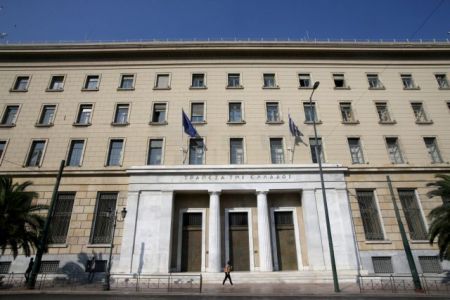








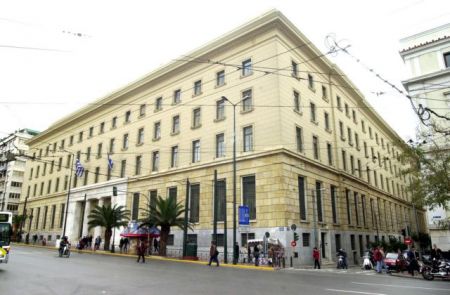
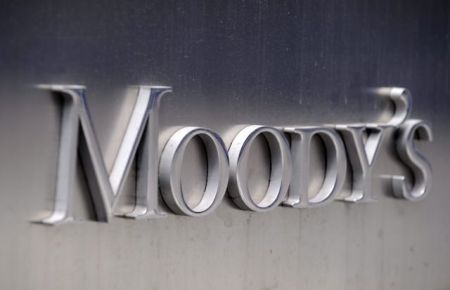
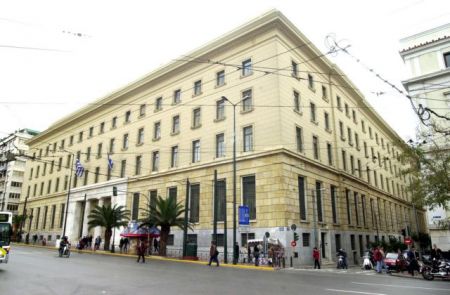
.jpg)

